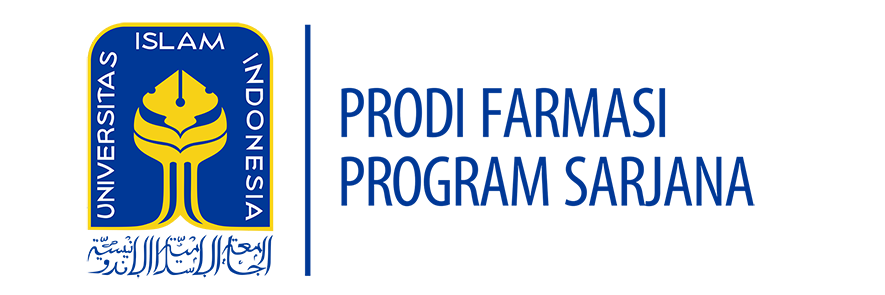COURSE INFORMATION
| Module Name | Fundamental of Islamic Studies | ||||
| Module level, if applicable | 1st Year | ||||
| Code, if applicable | UNI-104 | ||||
| Semester (s) in which the module is taught | 1st semester | ||||
| Person responsible for the module | Shubhi Mahmashony Harimurti, S.S., M.A. | ||||
| Lecturer(s) | Shubhi Mahmashony Harimurti, S.S., M.A. | ||||
| Language | Bahasa Indonesia | ||||
| Relation to curriculum | Compulsory | ||||
| Types of teaching and learning | Class size | Attendance time (hours per week per semester) | Forms of active participation | Workload | |
| Teaching, discussion and practice
|
50 – 60
|
2
|
Discussion | Lecture: 2 (hours) x 14 (meeting) | 28 |
| Preparation and follow up 4 (hour) x 14 (meeting) | 56 | ||||
| Total workload | 84 hours | ||||
| ECTS | 3 ECTS | ||||
| Credit points | 2 CU | ||||
| Requirements according to examination regulations | Minimum attendance at lectures is 75% (according to UII regulation) | ||||
| Recommended prerequisites | N/A | ||||
| Related course | |||||
| Module objectives/intended learning | On successful completion of the course students should be able to:
|
||||
| Content | This course aims to develop and develop an attitude of submission to God Almighty by carrying out His Shari’a in everyday life and upholding Islamic morals and universal ethics. This course is carried out with reflective learning and contextual learning methods, which invite students to reflect on what they have learned with experiences or situations that have been / are being experienced through the contextualization of what is learned with real problems that exist in society both locally, nationally and internationally. | ||||
| Study and examination requirements and forms of examination | Mid-term, Final term, assignments and presentation | ||||
| Media employed | Blended | ||||
| Reading lists | Tim Penyusun (2016), Pendidikan Agama Islam untuk Perguruan Tinggi, Dirjen Pembelajaran dan Kemahasiswaan Kemenristekdikti RI, dapat diakses melalui tautan https://belmawa.ristekdikti.go.id/2016/12/09/surat-edaran-bahan-ajar-mata-kuliah-wajib-umum/
Ahmad Azhar Basyir,1990 Pendidikan Agama Islam I (Aqidah), Perpustakaan FH UII. Shalih Bin Fauzan bin Abdullah Al- Fauzan, 1999., Kitab Tauhid 1,2 dan 3 , Yogyakarta, Fakultas Ilmu Agama Islam Universitas Islam Indonesia, Pusat Dakwah dan pelayanan Masyarakat Ahmad Azhar Basyir, Manusia dalam Islam DPPAI UII, Aqidah Islam |
||||
REQUIREMENTS
| Requirements according to examination regulations | Minimum attendance at lectures is 75% (according to UII regulation) |
| Recommended prerequisites- | |
| Related course | – |
| Study and examination requirements and forms of examination | Mid-term, Final term, assignments and presentation |
MODULE OBJECTIVES/INTENDED LEARNING
By the end of this course students should be able to:
- Explain the concept of human nature and guidance according to the Al-Qur’an and Hadith.
- Shows an attitude of piety by carrying out His shari’a in everyday life.
- Reflecting personal awareness as believers, Muslims, and Muhsin.
- Identifying universal goodness and ethical values contained in Islamic teachings and critically examining their implementation in Muslim life.
- Reflecting the conformity of daily personal behavior with Islamic values.
CONTENT
This course aims to develop and develop an attitude of submission to God Almighty by carrying out His Shari’a in everyday life and upholding Islamic morals and universal ethics. This course is carried out with reflective learning and contextual learning methods, which invite students to reflect on what they have learned with experiences or situations that have been / are being experienced through the contextualization of what is learned with real problems that exist in society both locally, nationally and internationally.
MEDIA EMPLOYED
Blended
READING LISTS
- Tim Penyusun (2016), Pendidikan Agama Islam untuk Perguruan Tinggi, Dirjen Pembelajaran dan Kemahasiswaan Kemenristekdikti RI, dapat diakses melalui tautan https://belmawa.ristekdikti.go.id/2016/12/09/surat-edaran-bahan-ajar-mata-kuliah-wajib-umum/
- Ahmad Azhar Basyir,1990 Pendidikan Agama Islam I (Aqidah), Perpustakaan FH UII.
Shalih Bin Fauzan bin Abdullah Al- Fauzan, 1999., Kitab Tauhid 1,2 dan 3 , Yogyakarta, Fakultas Ilmu Agama Islam Universitas Islam Indonesia, Pusat Dakwah dan pelayanan Masyarakat - Ahmad Azhar Basyir, Manusia dalam Islam
- DPPAI UII, Aqidah Islam
